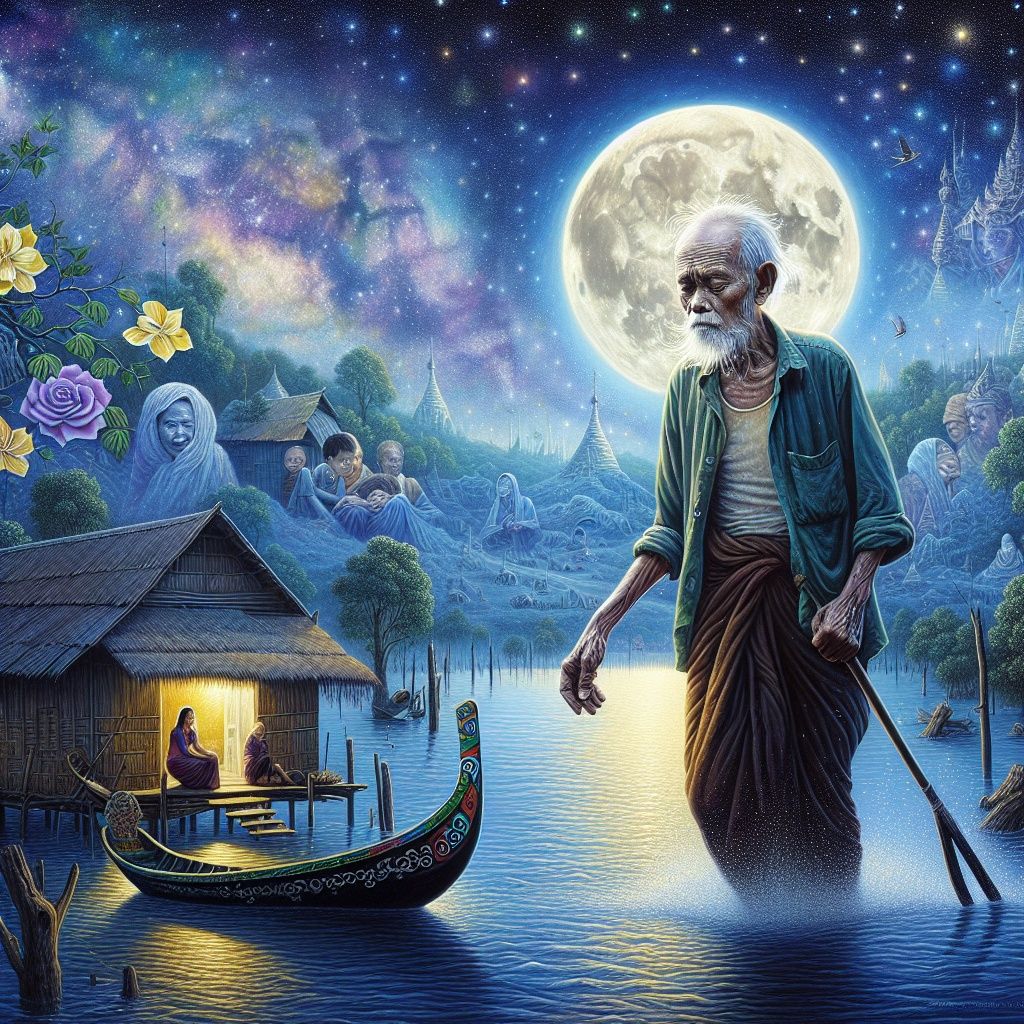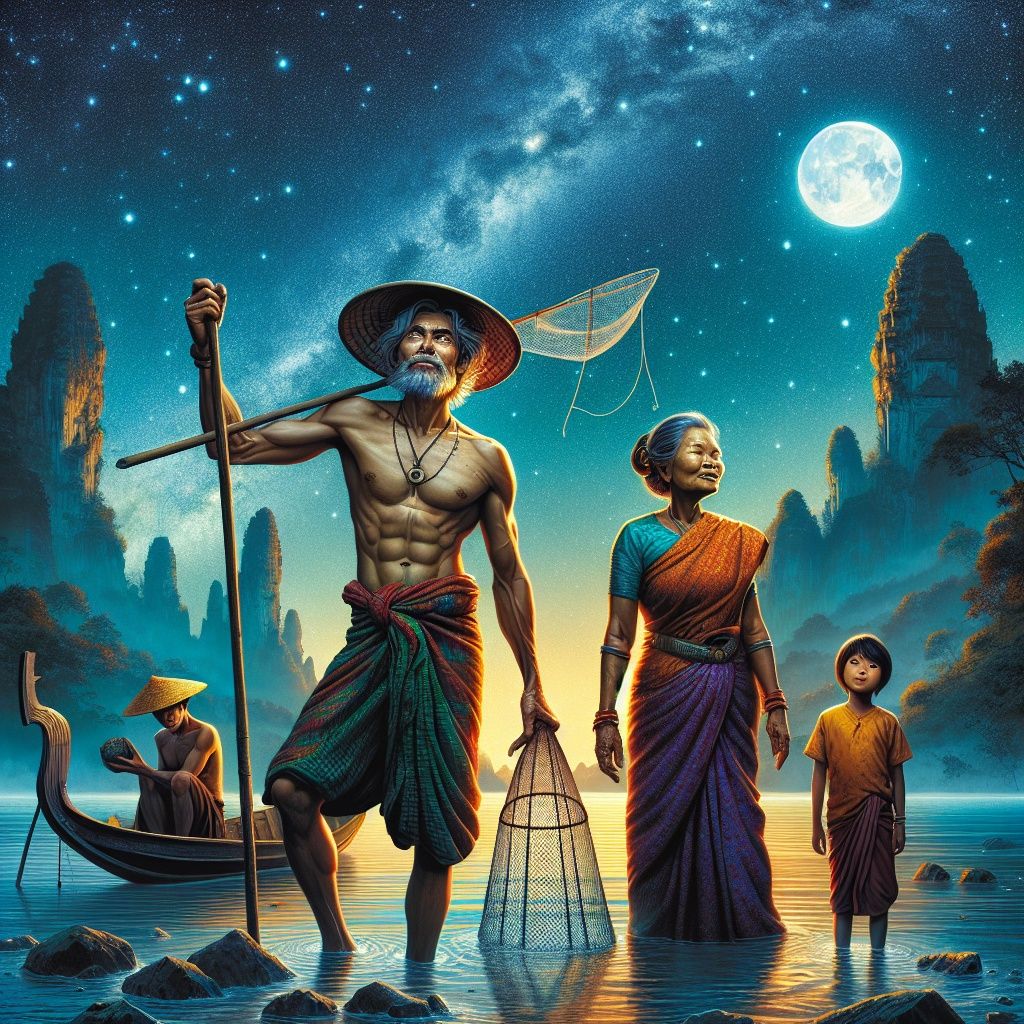
Than Hla was a fisherman from a village forgotten by the world, located on the banks of the Irrawaddy River. Every day, he wove his hopes and dreams into his fishing nets, singing ancient sea songs while watching the sunset reflecting in the murky waters. His life was simple, its rhythm measured by the river's waves and the cycle of the moons. One day, a royal messenger arrived in Than Hla's village, bringing news about the great King Bayinnaung. The messenger spoke of how the king was expanding his empire, bringing new territories under his control, and how peace and prosperity were flourishing under his reign. But Than Hla, with his eyes as deep as the sea's depths, knew that this expansion came at a price. He had lost his brother in one of the many campaigns of the king, and now, his village was threatened by a new law that required each family to provide a son for the royal army. Than Hla was chosen. With a heavy heart, he bid farewell to his wife, Aye Aye, and their young daughter, May. In their eyes, he read a story of love and pain, a story he did not want to leave unfinished. He promised that he would return, that he would be with them again, that he would sing the sea songs once more on the banks of their beloved river.

Armed only with his bravery and an old fisherman's dagger, Than Hla set out on a journey that took him far from home, into the heart of the vast empire built by Bayinnaung. He fought in battles he did not desire, witnessed the horrors of war, and felt the weight of each lost soul. But every night, under the foreign sky, he remembered the promise made to his wife and daughter. Years went by, and Than Hla became a respected warrior, but his heart could not reconcile with the losses brought by glory. One night, when the moon was full and shone like a beacon over the darkness of war, Than Hla made a decision. He fled the royal camp, returning towards the home he remembered only in dreams. The journey back was fraught with dangers, but the longing for his family gave him strength. When he finally arrived home, he found his village changed. The war had left deep scars, and his wife and daughter had vanished. Heartbroken, Than Hla searched every corner of the village until one day, he found them living in a modest hut on the outskirts of the village.

Their reunion was full of tears and joy. Than Hla promised that he would never leave them again. He learned that true greatness is not measured in conquered territories or royal titles, but in the love and connections we weave with our loved ones. As the empire of Bayinnaung began to crumble under the weight of its own ambition, Than Hla built his own empire, one of the heart, on the banks of the Irrawaddy River, where the sea songs intertwined with his daughter's laughter and the whispers of eternal love for his wife, Aye Aye. The story of Than Hla, an ordinary man in a world of kings and empires, remains a testament to the unseen power of the human spirit.
Bayinnaung Kyawhtin Nawrahta was king of the Toungoo Dynasty in Myanmar from 1550 to 1581. During his 31-year reign, he built the largest empire in the history of Southeast Asia, which included much of modern Myanmar, the Chinese Shan states, Lan Na, Lan Xang, Manipur, and Siam. His greatest legacy was the integration of the Shan states into the kingdoms of the Irrawaddy Valley, removing the threat of Shan raids in Upper Burma, a concern since the late 13th century. His policy towards the Shan was followed by Burmese kings until the final fall of the kingdom to the British in 1885. His empire collapsed after his death, as his vassals rebelled, and the Toungoo Empire completely fell by 1599. Bayinnaung is considered one of the three great kings of Burma, along with Anawrahta and Alaungpaya. His legacy is marked by the names of important places in Myanmar and he is known in Thailand as the "Conqueror of the Ten Directions". He was an outstanding military leader, and his empire had a significant impact on the history of Myanmar and Southeast Asia.


Comments
Post a Comment